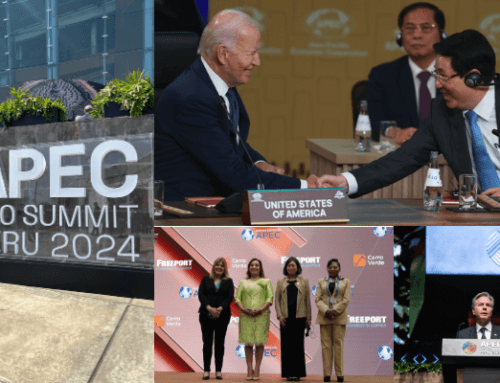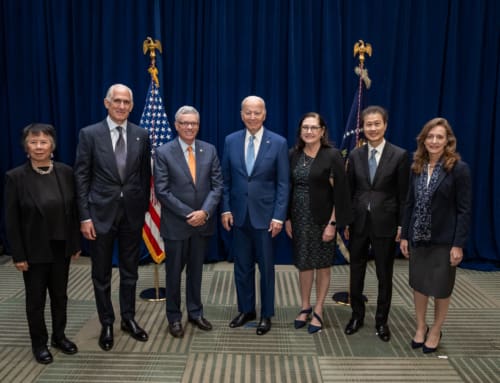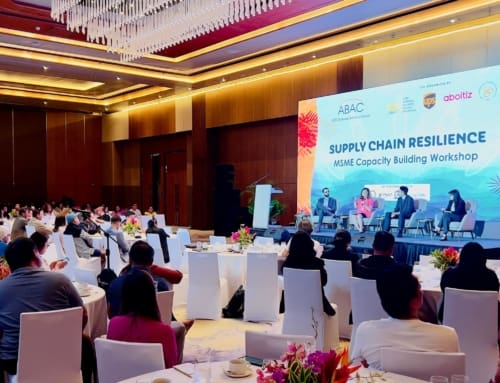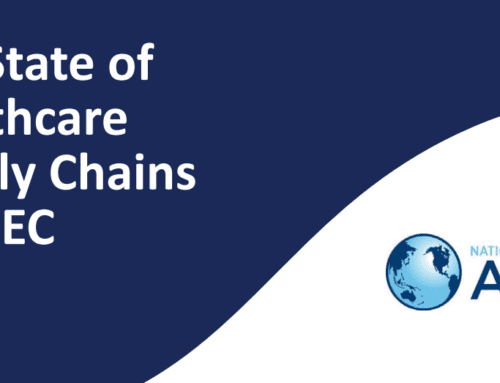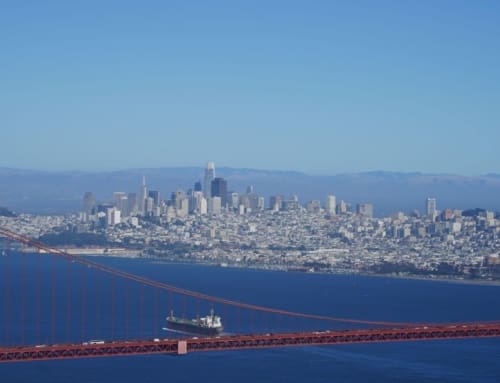U.S. Announces Offer to Chair APEC in 2023

During her trip to Asia in late August, Vice President Kamala Harris announced the U.S. offer to chair APEC in 2023. NCAPEC’s Board of Governors, which began advocating for this outcome directly to the administration, publicly welcomed the announcement and noted their intent to support this important endeavor. NCAPEC was joined by other stakeholders as well as members of Congress, who issued this letter, in calling for the administration to leverage this important opportunity to demonstrate the U.S.’ commitment to economic engagement in the Asia-Pacific. The U.S. offer is expected to be officially accepted by APEC economies during the APEC Economic Leaders’ Meeting in November.
As NCAPEC noted in a blog post in April of this year, APEC is an established body where the U.S. has a leading voice and includes important U.S. partners. APEC’s long-term vision aligns with the Biden administration’s trade and economic priorities, creating opportunities for the administration to:
- bolster leadership on climate change with a focus on how modern trade and investment disciplines can lead to better environmental and climate outcomes;
- promote the digital governance disciplines featured in the USMCA and U.S.-Japan Trade Agreement as norms for the region; and
- advance a worker-centered trade policy by advancing APEC’s work in support of entrepreneurs, women, and small businesses.
The Vice President’s announcement begins at 15:08:
“And now with an eye toward the future, we are strengthening our economic engagement. In fact, today, I am proud to announce that the United States is offering to host APEC in 2023. Through APEC, or the Asia-Pacific Economic Cooperation forum, the United States has long worked with our partners in Asia and Latin America to build an interconnected region that advances our collective economic prosperity.”
New Zealand Holds Third Senior Official Meetings (SOM)
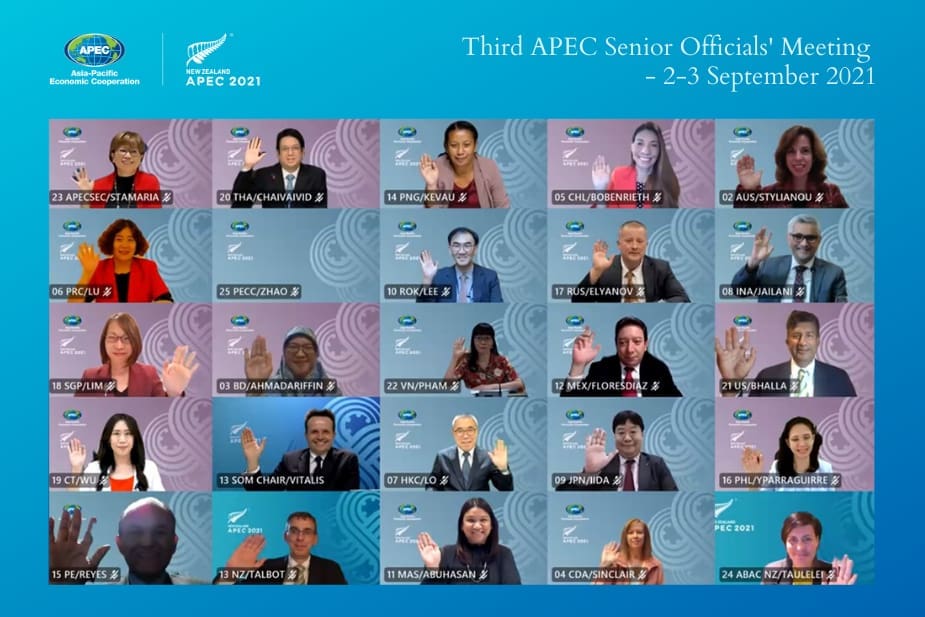
New Zealand held the third series of Senior Officials’ and Related Meetings (SOM 3) virtually over a three-week period, beginning in mid-August and concluding in early September. Numerous APEC working groups and sub-fora gathered during this time to advance work under New Zealand’s 2021 themes of 1) promoting trade and economic policies that strengthen recovery, 2) increasing inclusion and sustainability, and 3) pursuing innovation and a digitally enhanced recovery. A key deliverable for 2021 will be the Implementation Plan for the Putrajaya Vision which will guide APEC’s work through 2040.
APEC will maintain a busy schedule of meetings in advance of the annual gathering of APEC Leaders. The APEC Women and the Economy Forum on September 24 and Small and Medium Enterprise and Finance Ministers will meet October 9 and October 22, respectively. APEC Leaders’ Week, which includes the Concluding Senior Officials Meeting, APEC Ministerial Meeting, ABAC IV, the APEC CEO Summit, ABAC Dialogue with APEC Leaders and APEC Leaders’ Meeting is scheduled for November 8-12.
Registration for the APEC CEO Summit is now open. The event, to be held on November 10 and 11 in the U.S., will bring together the brightest minds in the private sector, thought leaders, CEOs and world leaders to discuss topics that are central to the APEC region and the world like climate change and sustainability, COVID-19 economic recovery, the future of trade, and digitalization to name a few. https://apecceosummit2021.eventcore.com/auth/login.
*Photo credit: APEC2021NZ.
APEC Business Advisory Council Finalizes Recommendations to Leaders
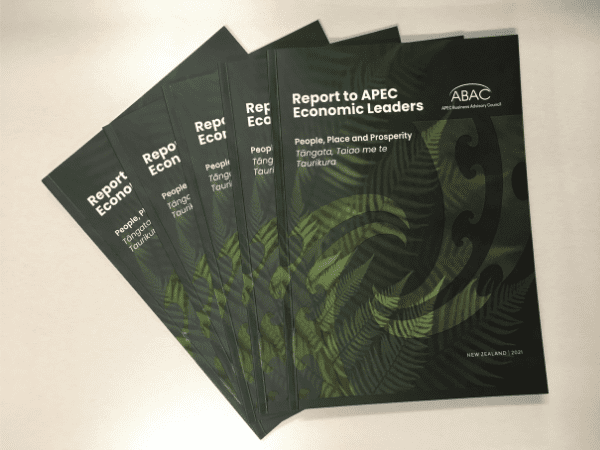
APEC Business Advisory Council (ABAC) members met virtually for their third meeting of 2021 in early August. New Zealand Prime Minister Jacinda Ardern participated in a dialogue with members to kick off the meeting. Major outcomes included the ABAC Letter and Report to Leaders and letters to sectoral ministers. The report includes over 40 recommendations on topics including the digital economy, regional economic integration, inclusion, finance, trade, and sustainability.
The Report includes annexes addressing reopening borders, the World Trade Organization, climate change, renewable energy, and economic inclusion for indigenous people. The Report, which forms the basis of discussion in the annual ABAC Dialogue with APEC Leaders, will be released to the public in late October.


